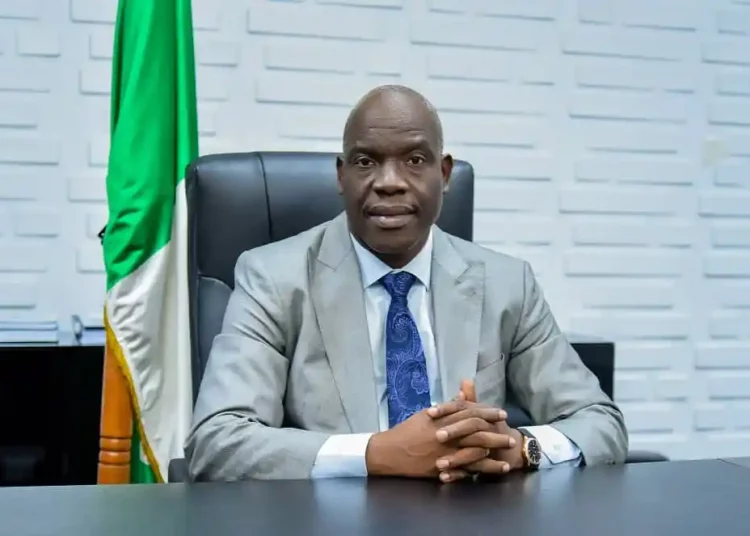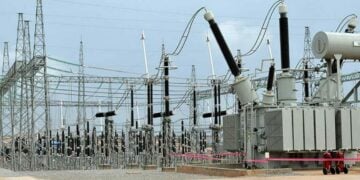The Nigerian Upstream Petroleum Regulatory Commission (NUPRC) has confirmed the successful completion of two of the International Oil Companies (IOCs) divestment of onshore assets in the country’s oil and gas industry, worth billions of dollars.
This is as the country’s oil rig count increased to 34 in June 2024, a significant increase from the previous year.
Nigeria’s rig count rose by 36 per cent year-on-year, up from 25 rigs recorded in June 2023. This marks a steady increase in upstream activities, indicating a renewed confidence in the industry and the country’s ability to attract investment.
NUPRC chief executive, Gbenga Komolafe, announced this yesterday in Abuja during his presentation at the ongoing 23rd Nigeria Oil and Gas Energy Week.
Komolafe said the two deals involve the divestment of Eni NAOC’s interests in Oil Mining Lease (OML) 60 to Oando and the Equinor– Project Odinmin, adding that both deals have been completed and the Signing Ceremony is to be conducted in the coming days.
Equinor is selling its Nigerian business, including its stake in the Agbami oil field, to Nigerian-owned Chappal Energies. The transaction involves Equinor’s subsidiary Equinor Nigeria Energy Company (ENEC) being acquired by Project Odinmin Investments Limited (POIL), a special purpose vehicle owned by Chappal Energies.and Giving updates on the status of the divestment of SPDC – RENAISSANCE, Komolafe said that documents submitted by SPDC are still undergoing due diligence.
Recall that Shell agreed to sell its Nigerian onshore subsidiary, the Shell Petroleum Development Company of Nigeria Limited (SPDC), to Renaissance Consortium for $2.4 billion.
Meanwhile, on the ExxonMobil–Seplat Deal, he said the company has expressed commitment to proceed to apply for Ministerial Consent to NUPRC.
Recall that the ExxonMobil-Seplat deal is about the divestment of ExxonMobil’s 40 per cent stake in Mobil Producing Nigeria Unlimited (MPNU) to Seplat Energy Plc.
In February 2022, Seplat announced an agreement to acquire ExxonMobil’s 40 per cent stake in MPNU for $1.28 billion.
However, the deal was stalled for over two years as NNPC invoked its right of first refusal and challenged the transaction, citing national interest.
In May 2022, the federal government declined to approve the transaction.
In July 2022, a court issued an injunction prohibiting ExxonMobil from finalising the divestment.
After intervention by President Tinubu, NNPC signed a settlement agreement with ExxonMobil and MPNU to facilitate the divestment to Seplat.
As part of the settlement, NNPC will hold a 70 per cent stake in the resulting joint venture with Seplat as the operator.
The deal allows Seplat to acquire ExxonMobil’s offshore shallow water assets in Nigeria, with NNPC taking a majority stake in the joint venture.
The divestment deals are expected to bring in fresh capital, technology, and expertise, which will help to increase oil production, reduce carbon emissions, and create new opportunities for Nigerians in the industry.
He stated further that the divestment of Exxon Mobil (MPN) to Seplat is inconclusive as no documentation for the transaction was sent to the commission.
The NUPRC Boss told participants that the divestment process needed to be carefully looked into as countries like Lebanon, Canada, Brazil, Australia, New Zealand, and the UK had bad experiences with their divestment process.
He added that the NUPRC has been mandated to protect the interest of Nigeria particularly in terms of investments made in the oil and gas sector.
Komolafe said, “We were able to review examples of countries that were not afraid to divest and had very bad experiences. We looked at an example of Lebanon, Canada, Brazil, Australia, New Zealand, and the UK.
“As a country, and as a regulator, we do not want that to happen for our nation. While we recognize the right of investors to do their best, the security of the national interest must be guaranteed.
“I find it necessary to announce here this afternoon, the status of these four divestments. I’m happy to announce that the Nigerian Agip Oil Company (NAOC) to Ocean and Oil (OANDO), Equinor to Project Odinmim exercise has been completed, and the signing ceremony will be conducted in two days.
“As regards the direction of SPDC to Renaissance, the status is that the regulator has received the documentation and is currently undergoing the necessary due diligence.
“On the MPN – SEPLAT, the regulator, as we speak, is yet to receive the documentation for due diligence.”
Speaking further, Komolafe explained that the NUPRC has proactively put in place the divestment framework that would continue to drive investments into the oil and gas sector in Nigeria.
“The objectives are to ensure that the seller will ensure that the buyer can demonstrate financial capacity and technical capabilities, there are no liquid influences, and the issue of decommission and abandonment will be well situated,” he added.
In his presentation titled “Defining the Outlook for Deep-Water Exploration and Production in Nigeria,” Komolafe also outlined the future plans for deepwater upstream investment in the country.
He emphasised the need for sustained investment in the industry to achieve the country’s oil production targets.
During the panel session, some of the International Oil Companies (IOCs) stressed the need for a stable regulatory framework, improved security, and competitive fiscal terms to attract more investments into the industry.
The successful completion of these divestment deals according to the NUPRC boss is a testament to the commission’s commitment to creating an enabling environment for investment in the oil and gas industry.
The deals are expected to have a positive impact on the country’s economy and contribute to the growth of the industry.
Also speaking on the need to boost Nigeria’s Deep offshore assets, the CCE said, Nigeria’s deep offshore accounts for 43 per cent of the country’s total oil reserve, adding, “our total international oil production, our deep offshore accounts for 30 per cent of our daily production. And of the total world development, the deep offshore contributes 60 per cent of the entire world.”





